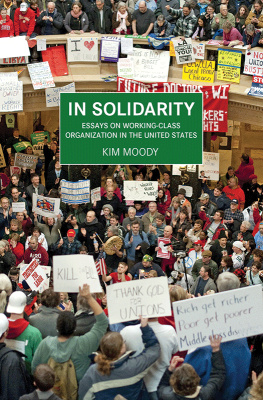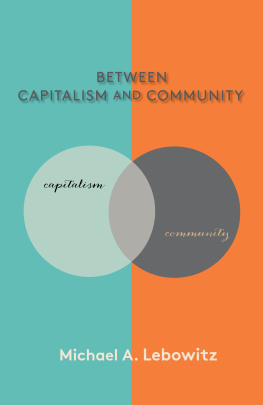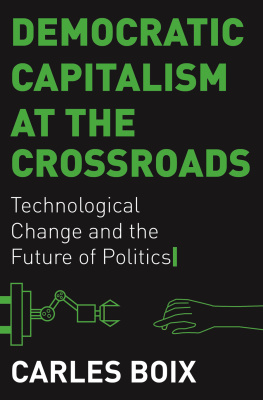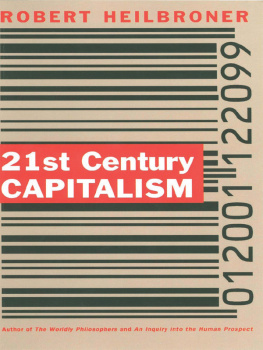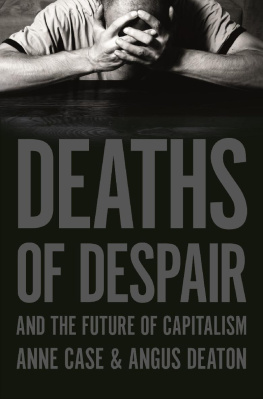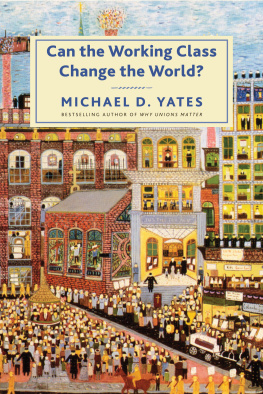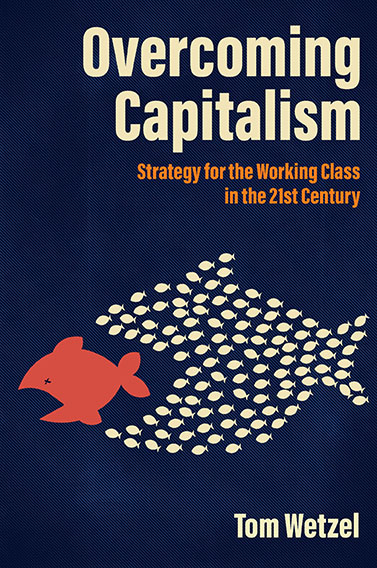Acknowledgments
I think I began asking myself the question, How can the working class free itself from class oppression? back in the late sixties. In that era a helpful source of insight for me was Bertrand Russells clearly written little book, Roads to Freedom . Russell provided a reasonably objective evaluation of the various radical alternatives of the World War I eraMarxism, Kropotkins anarchist-communism, syndicalism, and guild socialism. In this book, I follow Russells example, to some extent, in providing an examination of the major strategies proposed by various radical-left tendencies in recent decades. Russell and other English-speaking philosophers in the early-twentieth century placed a strong emphasis on clarity of analysis and making the writing accessible to people in generala practice Ive tried to emulate.
When I was helping to organize a union of teaching assistants at UCLA in the early seventies, a union supporter who was an anarcho-syndicalist, Ralph Alvy, suggested I read about the revolution in Spain in the 1930san event I hadnt heard about until then. Reading through the detailed eye-witness account of widespread worker self-management in Gaston Levals Collectives in the Spanish Revolution (recently reprinted), I was deeply impressed. Other writers have explored other aspects of that movementsuch as Martha Ackelsbergs Free Women of Spain , which offers a detailed account of the impressive movement built by anarcho-syndicalist women militants through the Mujeres Libres organization. These and other accounts helped me gain an appreciation of the syndicalist mass worker movement in Spain in that era. That movement gave concrete evidence for the revolutionary potential of grassroots unionism, and the ability of working people to build from below a worker-controlled form of socialism.
The purpose of this book is to provide an up-to-date exposition and defense of revolutionary syndicalism in English. Since I first became committed to the ideas and politics of libertarian socialism and syndicalism back in the seventies, a half century has flowed under the bridge. During these years, Ive learned from countless conversations with labor and social movement activists and my radical comrades and friends. Ive also learned from reading countless essays, memoirs, and books. (Some are in the footnotes.) In short, Ive learned from many peoplefar too numerous to mention.
Putting this book together has taken a number of years. AK Press has been patient for a book-writing project that has taken me longer than I imagined. I want to thank my editor Zach Blue for his patience and suggestions along the way, and Christen Cioffi for their help with the book promotion.
Writing can be a sort of lone activity. Mainly its my quirky cat Lucy who has kept me company, purring with her paws over my shoulder as I was reading books and essays. I had numerous talks with my friend James Tracy who also read all the chapters as they were written and gave me feedback. Andrej Grubai also provided helpful conversations and comments along the way. Robin Hahnels comments on the last chapter, From Syndicalism to Libertarian Ecosocialism, helped me to improve and clarify the economic proposals I make there. I had many conversations about labor history and workplace strategy with my long-time syndicalist friend and comrade Mitch Miller, who also read a number of the chapters. Ideas about the relationships among worker and social movement organizations have also been part of my conversations with local syndicalist comrades, Steve Ongerth and Ricky Grams.
I also want to thank James Tracy, Andrej Grubai, and Robin Hahnel for the endorsement comments they provided for AK Press.
Introduction
There are many reasons why humanity needs to ditch the capitalist regime. The heart of the system is the extraction of wealth from the labor of the working class. Workers dont have their own independent means to a livelihood. A person down the block, Maria, has been out of work for a while. Shes running out of funds, cant pay her rent, and is at risk of being thrown on the street. Finally, she gets a low-wage job offer in food prep. She can honestly say she had no choice, was forced to take the job. This is part of the working-class condition. Workers are forced to seek jobs from employers. Thats how we get money to pay the rent, shop for food, buy medicines, and so on.
Once were hired, we must submit to the autocratic management schemes the firms have set up. Usually, we have close to zero say in the running of the workplace or the labor process. If we think about it, this runs counter to human nature. Working people do, in fact, have the capacity to learn and acquire skills and control our own work, and to cooperate with others to run workplaces in a democratic way. But this potential is trampled by the capitalist labor-control regime. Management power is in fact inherently coercive. That you can be threatened with firingloss of your livelihoodfor trying to build a union or for questioning things, implies that managers have a coercive power over you. And this regime exists so that profits can be pumped out of our labor, to enable firms to expand into new markets, do mergers and acquisitions, pay high salaries to those in management, and invest in new technologies to eliminate jobs. This is a brief summary of a system rooted in class oppression and exploitation.
But the capitalist set-up isnt just the class-control scheme. Capitalist society is layered with various destructive fault lines. American capitalism has always had its tendencies to inequality based on racialized and gendered divisions. The systems top-down bureaucratic state is there to hold it all together and protect elite interests. The worsening environmental crisisfrom pollution of air and water to the imminent threat of global warmingis rooted in the pervasive cost-shifting behavior of companies.
If the oppressed and exploited majority is to liberate itself from this regime, we cant avoid the need for strategic thinking. Most of this book is a discussion of strategystrategies for getting rid of capitalism. A plausible politics for replacing the capitalist regime requires realistic ideas about the methods of action and organization that could build a social movement with the capacity to transform the society.
Strategy for social change is closely linked to what the vision or goal is that we want to achieve. The vision for a replacement for capitalism is going to also influence our strategy since the strategy needs to have a good fit with what our aim is. The society that emerges in a period of heightened struggle and social conflict is likely to reflect the social forces that drove that changetheir organizational practices and aspirations.
Bringing an end to the regime of class oppression and exploitation is going to require doing away with private ownership of the nonhuman means of productionthe various facilities used in all the industries. This is why the movement for a replacement system is called socialism .
But socialism is a contested concept. Since the nineteenth century, socialists have differed in both their conception of the goal and their strategy for getting there. By the 1920s, a number of different grand strategies had been developed by various groups of socialists. Such strategies as (1) cooperativism, (2) a party-oriented strategy based on electoral politics and electing socialists to government office, (3) revolutionary libertarian unionism (also called syndicalism in English-speaking countries), and (4) the communist (or Leninist) movement based on the model of the Bolsheviks in the Russian revolution.



